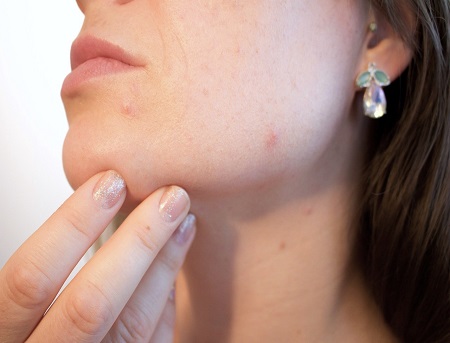How to Combat Adult Acne
 Dealing with acne can be particularly challenging, impacting self-esteem and professional confidence. While often associated with adolescence, acne affects a significant number of adults.
Dealing with acne can be particularly challenging, impacting self-esteem and professional confidence. While often associated with adolescence, acne affects a significant number of adults.
In the United States, up to 50 million individuals experience acne annually, with a notable prevalence among women. Understanding the causes and implementing effective strategies is essential for managing this persistent condition.
Causes of Adult Acne
Adult acne arises from a combination of factors:
* Hormonal Fluctuations: Changes in hormone levels can increase oil production, leading to clogged pores. This is common during menstrual cycles, pregnancy, and menopause.
* Stress: Elevated stress levels stimulate the adrenal glands to produce more androgens, exacerbating acne.
* Skincare Products: Using products that are not non-comedogenic can clog pores and trigger breakouts.
* Diet: Some studies suggest that high-glycemic diets and dairy consumption may contribute to acne development.
* Medications: Certain drugs, including corticosteroids and lithium, can induce acne as a side effect.
Establishing an Effective Skincare Routine
Begin with cleansing twice daily using a mild, non-comedogenic cleanser to remove excess oil and impurities without stripping away natural moisture.
Incorporate exfoliation into the routine by using products that contain salicylic acid or glycolic acid, which promote cell turnover and help prevent clogged pores.
For treatment, consider applying topical solutions with active ingredients like benzoyl peroxide or retinol. Derived from vitamin A, retinol creams are particularly effective in unclogging pores and reducing inflammation.
Maintaining proper hydration is equally important, so opt for oil-free, non-comedogenic moisturizers that won’t exacerbate breakouts.
Lastly, protect your skin from sun damage by using a broad-spectrum sunscreen with SPF 30 or higher daily, as some acne treatments can make the skin more sensitive to UV rays.
Over-the-counter and Prescription Treatments
Various treatments are available depending on acne severity:
* Over-the-counter (OTC) Options: Products containing benzoyl peroxide, salicylic acid, or alpha hydroxy acids can be used for mild acne.
* Prescription Medications: For more persistent cases, dermatologists may prescribe topical retinoids, antibiotics, or hormonal treatments like oral contraceptives.
* Procedural Treatments: Options such as chemical peels, laser therapy, and light-based treatments can reduce acne lesions and improve skin texture.
Lifestyle and Dietary Modifications
Addressing lifestyle factors can play a significant role in managing the condition. Adopting a low-glycemic diet that emphasizes fruits, vegetables, and whole grains may help reduce the frequency and severity of breakouts.
Managing stress is also crucial as this can contribute to flare-ups. Engaging in practices such as yoga, meditation, or regular physical activity can help to lower stress and promote overall well-being.
Additionally, ensuring adequate and quality sleep is essential, as it supports hormonal balance and overall skin health to help prevent acne.
When to Seek Professional Help
If over-the-counter treatments are ineffective after several weeks, or if acne is severe and causing scarring, it’s advisable to consult a dermatologist. Professional evaluation can lead to personalized treatment plans, including prescription medications and advanced therapies.
Dealing with adult acne requires a comprehensive approach, combining appropriate skincare and lifestyle adjustments. By understanding the underlying causes and available treatments, individuals can achieve clearer skin and improved confidence.